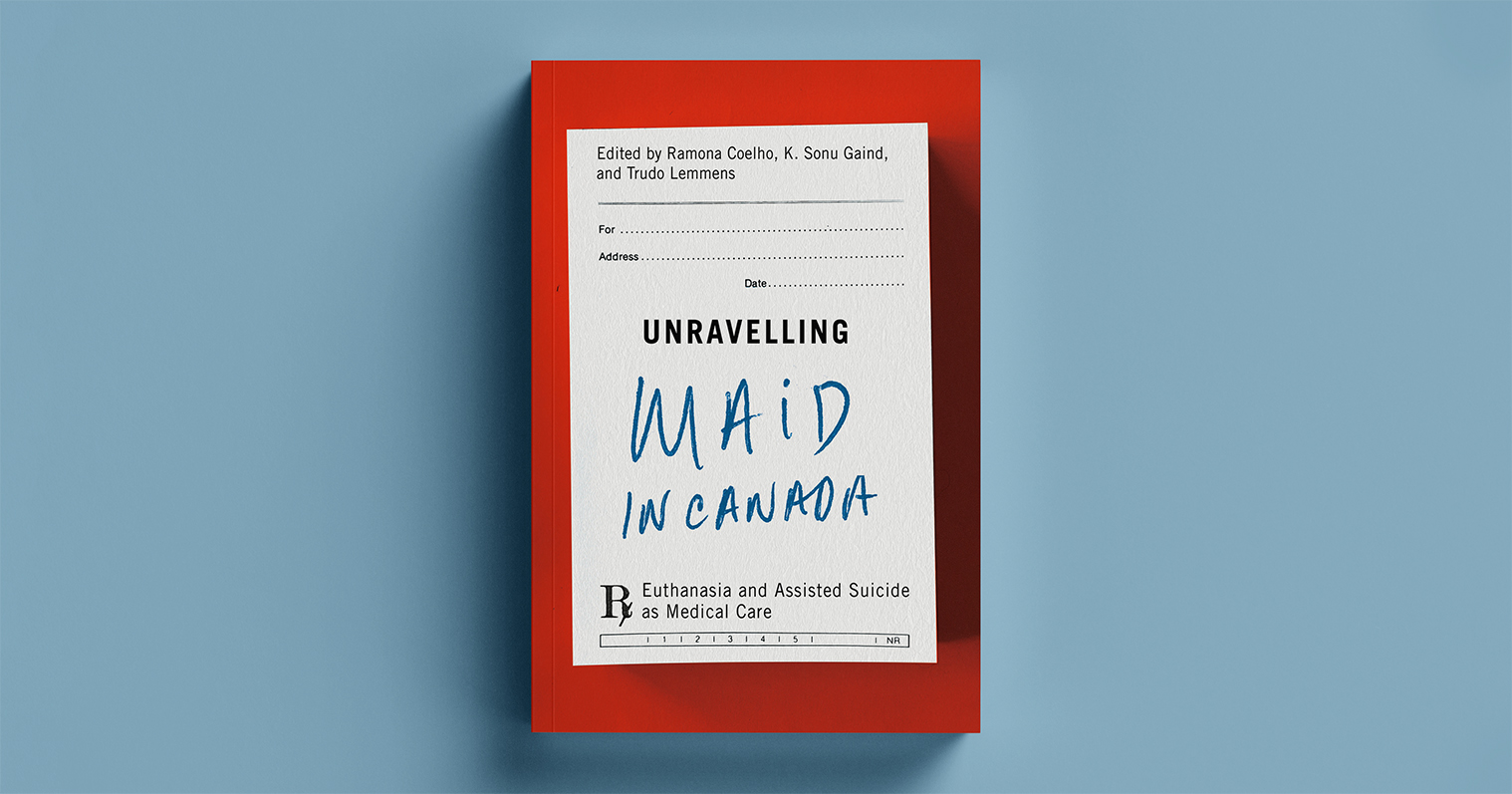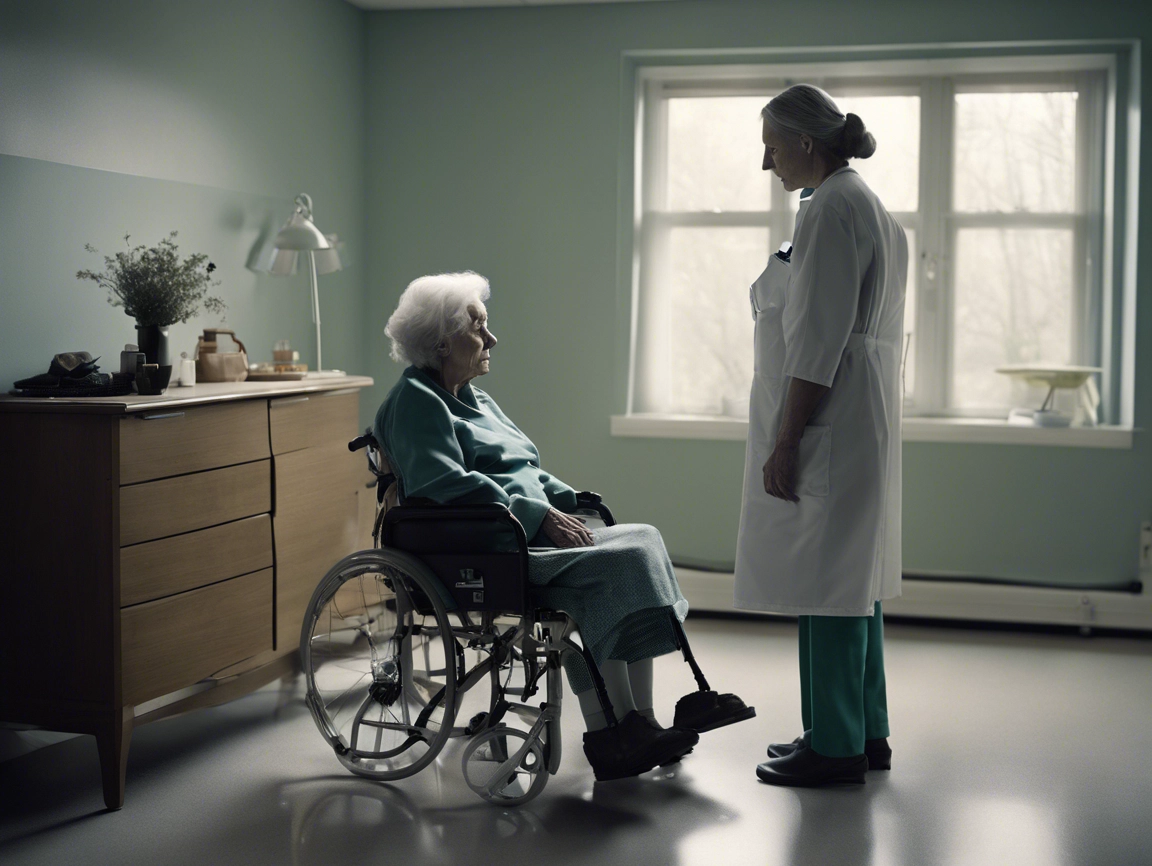“On 16-17 November 2017, medical professionals, legal authorities, experts in palliative care and medical ethics, theological scholars and philosophers from over 30 countries gathered in the Aula Vecchia del Sinodo in the Vatican for the World Medical Association European Region Meeting on End-of-Life Questions.”
The World Medical Association’s stance on euthanasia is unambiguous: “Euthanasia, that is the act of deliberately ending the life of a patient, even at the patient’s own request or at the request of close relatives, is unethical.”
Until recently, this was also the position of the Canadian Medical Association. However, Dr. Jeff Blackmer, political voice of the Office of Ethics, and Vice President of the CMA, is now lobbying vigorously for WMA policy to be changed: surprisingly, considering that, by his own admission, a large majority of Canadian doctors opposed legalization of euthanasia from the outset, and the medical profession in Canada remains deeply divided on this question.
Why has Dr. Blackmer not taken a more balanced approach, which would truly reflect the unease felt by Canadian doctors about euthanasia, and show greater respect for physicians in other countries, whose views and circumstances are often very different from our own? How in short, can any spokesperson of the CMA legitimately presume to leverage the unwilling acquiescence of Canadian doctors, confronted with an unpleasant legal reality, into a positive mandate to promote the ethics of euthanasia on the international stage ?
A generous answer to this question, we believe, might indicate an unfortunate confusion of the terms “legal”, and “ethical”
Here, from his twitter feed, is how Dr. Blackmer states he conceived of his mission at the recent WMA meeting :
At a meeting on #EOL care and #euthanasia at #TheVatican organized by @medwma. @CMA_Docs pleased to represent Canadian physicians here. Current WMA policy states physicians who participate are unethical. We are working with others to try and change this. pic.twitter.com/rKOkAcLf1F
— Jeff Blackmer (@jblackmerMD) November 16, 2017
And a few days later:
Let me make something crystal clear. The CMA supports the right of all its members to decide whether or not to participate in #euthanasia. We have spent 1000’s of hours protecting conscience rights. And we will advocate for our members who elect to participate in a legal act.
— Jeff Blackmer (@jblackmerMD) November 19, 2017
In the first formulation, speaking naturally, Dr. Blackmer claims to represent the ethical position of Canadian physicians. But after a certain amount of social media controversy over whether he has any such mandate, he merely speaks of transmitting the CMA’s position regarding the legality of euthanasia.
Leaving aside for a moment the confusion, of CMA policy, with the broader range of opinions of Canadian physicians, Dr. Blackmer seems to be implying that it is “ethical” for a doctor to do what is “legal”, i.e. that ethics is determined only by law. But is that true?
Most people have a quite different view. Law and ethics are related, but not identical. Ethics comes first, and the law, when at its best, reflects the truth of ethics; but the law cannot forbid all unethical conduct. This is the painful experience of untold persons who sincerely (and often correctly), claim that they have been manipulated, injured, cheated, and abused by others, who, nonetheless, have done nothing illegal – which does not mean they have done nothing wrong.
This is the most important practical distinction we may draw between ethics and law: People disagree about what is ethical. But there can be only one law. Inevitably, then, people will also disagree on whether a given law is ethical or not. Moreover, current legal theory does not even explicitly require that permitted acts be ethical. There are other factors, such as harm reduction and Charter freedoms, which are used to justify the decriminalization of certain behaviours without agreement ever having been reached on their ethical status.
Euthanasia is clearly one such example. Some people believe it is ethical; some do not. In some jurisdictions, lawmakers have decided that — like cannabis or alcohol — it is less unjust to permit euthanasia than to forbid it; in others they have not. In Canada, voluntary euthanasia is now permitted; but it is a fallacy for the supporters of euthanasia to say the practice has therefore become “ethical”; it has not. The law has nothing to say about ethics in this case.
And others have chosen different laws.
To place this disagreement in quantitative terms: Euthanasia is only legal in the Netherlands, Belgium, Luxembourg, Colombia and Canada. Let us honestly recognize, in this fact, that Canada has adopted an extreme legal position. Even if all the doctors — and the whole population — in these few countries, were absolutely convinced of the ethics of euthanasia, it would seem at very least a little arrogant for 1.5% of the human race to argue that THEIR laws were the truly ethical ones, as opposed to all others. Perhaps a little more humility would be in order.
Also, conditions in other lands are very different from ours. The sophisticated chic of prosperous baby-boomers in developed countries, who toy with medical suicide to escape their existential distress, stands in stark contrast to the daily struggle for life and family — the perseverance and the sacrifice — which define human reality nearly everywhere else.
In most countries, talk of euthanasia is anathema. Why? Because medical care is expensive and euthanasia is cheap. Hence the danger, intuitively understood by all citizens of developing and/or autocratic nations, that if euthanasia is defined as medical treatment, they will NEVER attain the sort of care which we in Canada take for granted. These people do not want euthanasia. They do not want the “right” to die; they want medical help to survive. And the only way for them to effectively articulate and promote their own legitimate needs lies in the refusal of euthanasia as an ethical choice and the maintenance of its legal prohibition. There should, in recognition of these facts, be a very measured tone in the presentation of Canada’s experience on the foreign stage.
Back on the home front: There is a very real difference between the widely divergent opinions and convictions of Canadian physicians, about euthanasia, and the unified policy positions eventually espoused by the CMA. Canadian doctors are far from convinced of the ethics of euthanasia. Many are entirely opposed to the practice; some are enthusiastically in favour. But the middle fraction, in various degrees and combinations, are personally unwilling to participate (unconvinced of the ethics?) even if reticent about imposing their position on others.
This last characteristic of our sophisticated postmodern Canadian society, that is, the reflex to abstain from imposing personal ethics on others, should definitely inform any action taken by organizations, such as the CMA, to explain our policy decisions to those in other lands. It is entirely appropriate for Dr.Blackmer to explain to his foreign counterparts that some Canadian doctors feel they are behaving ethically in performing euthanasia. However, considering the lack of consensus among Canadian doctors and the energetic opposition of most national medical associations (including not only developing nations, but also those of the USA, the UK, France and Australia), it would seem that a certain restraint and modesty are also in order. Zealously promoting the ethical superiority of what remains a hotly disputed political compromise even at home, would seem presumptuous at best, and at worst, simply rude in the eyes of our foreign colleagues. At most, the CMA should adopt a neutral position concerning the ethics of euthanasia, and should definitely refrain from pushing the WMA towards a radical pro-euthanasia stance on this issue.
How then do Canada and the CMA measure up to this standard of nuanced plurality, in discussion at home and abroad? Here are a couple more of Dr. Blackmer’s tweets:
On WMA debating assisted dying policy at the Vatican – “It’s like having a human rights discussion in North Korea,” said @jblackmerMD. @CMA_Docs advocating for patient autonomy and compassion. https://t.co/eGluKR4ijx
— Jocelyn Downie (@jgdownie) November 19, 2017
Followed by:
I’ve decided, as a general principle, to block anyone on Twitter who in any way compares Canadian physicians who participate in #euthanasia to #Nazis. Just so there are no surprises, misunderstandings or hurt feelings.
— Jeff Blackmer (@jblackmerMD) November 19, 2017
There is an obvious double standard here, concerning who may be likened to evil totalitarians (Christians and others of a traditional moral bent, it seems) and who may not (euthanasia apologists, of course). But there is much more in this than mere name calling. The surest way to obtain a desired policy result is to control at the outset what may or may not be discussed, and especially, who may or may not contribute to the discussion. Sadly, in direct contradiction of his usually careful public discourse, Dr. Blackmer’s informal tweets betray a willingness to do both: if possible, to ban entire lines of reasoning; and if not, to ban the people who would insist on using them.
However, many of those who oppose euthanasia in the present rely on data-based historical analysis of euthanasia in the past. And no history of euthanasia can ignore the real-world example of Nazi Germany. This has been widely discussed, including recently, by noted disabled scholar and Officer of the Order of Canada, Catherine Frazee. No conversation can claim legitimacy which would exclude such voices.
Of course, Dr. Blackmer is perfectly justified in banning whoever he likes from his own personal twitter feed: for any reason; or for no reason at all. But a CMA representative at a WMA meeting does have an obligation to present the whole face of Canadian medicine to the world — not that of one faction alone. We received many critical comments from our members and supporters about the CMA’s misrepresentation of the subtle and diverse reality of opinion among Canadian doctors.
Whither the required respect and accommodation of opposing views? We hold ourselves voluntarily to this standard of respectful disagreement, and we expect the same from those at the CMA who purport to fairly represent Canadian doctors. Future CMA declarations and guidance, especially in international discussion, should reflect the fact that no consensus exists among Canadian doctors on the ethics of euthanasia — an issue which is entirely separate from its legality.
Make euthanasia unimaginable.


